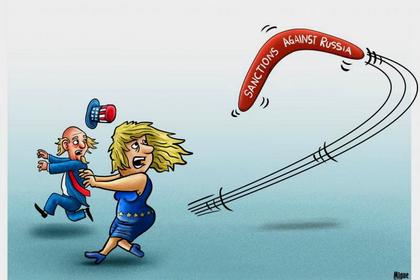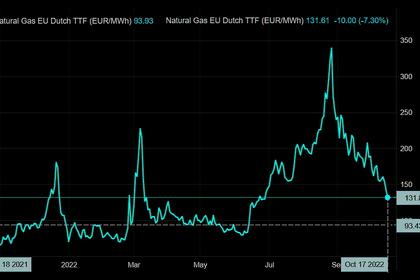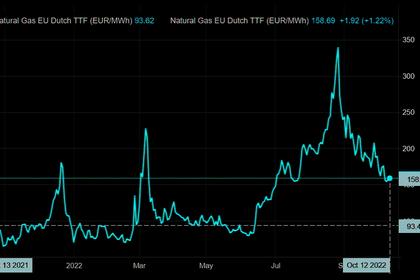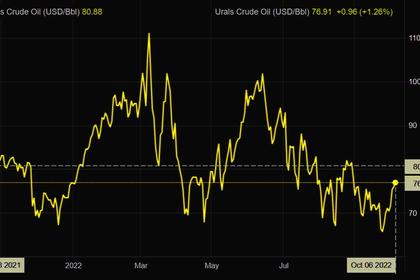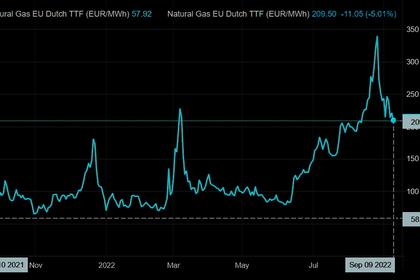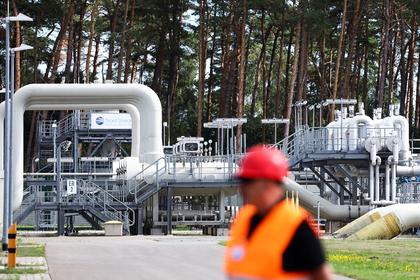
EUROPEAN WINTER RISKS
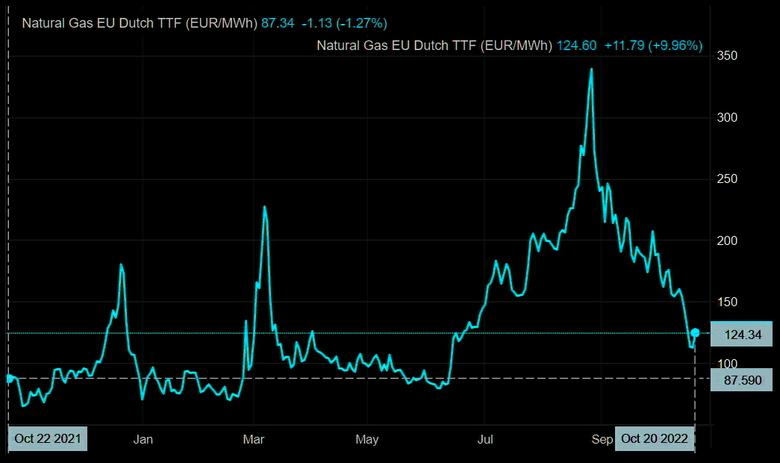
BLOOMBERG- Oct 20, 2022 - Europe has worked hard to fill up natural gas reserves for the winter, but the inconvenient truth is that national governments have little to no control over those supplies.
Only about 10% of the gas in storage facilities from Italy to the Netherlands is under the direct control of public officials through national strategic reserves, according to data compiled by Bloomberg.
The rest is in the hands of international trading companies, energy utilities and industrial groups, and companies are free to sell to the highest bidder, even if it’s in another country. That means a cold snap in Germany could trigger a run on gas in its neighbors and strain Europe’s solidarity in the process.
The region’s gas network is supposed to work by allowing supplies to flow between markets. As long as there’s enough fuel in the system, it should balance out. But it hasn’t operated under a scenario like the current crisis.
“The practicalities of the system have never been really tested before,” said Graham Freedman, an analyst at consultancy Wood Mackenzie. “Much will depend on the severity of this winter.”
If it’s cold, inventories could sink below 10% by the end of March, according to Freedman. That could set off a renewed scramble for supplies ahead of next winter.
While Europe lacks transparent data on who owns stored gas, the bulk is held by utilities, including state-owned companies, that will need to withdraw fuel to supply households and manufacturers, according to people familiar with the matter.
A smaller amount is in the hands of trading companies like Glencore Plc and Vitol Group, whose main interest is maximizing the value of their portfolios. They’re relatively minor players because of the high costs involved and new regulations had added more hurdles, said the people, who asked not to be identified because the information is private. Glencore, Vitol and Trafigura Group declined to comment.
“Holding physical gas in storage may form some part in a larger asset-backed strategy” for private trading companies, said Alun Davies, senior director for European power and gas at S&P Global, adding that pure traders generally provide liquidity rather sink resources into large stores of fuel.
Concerns about winter supplies have gripped the region for months, spurring efforts to hoard gas -- reserves are now almost full and above the five-year average.
But to avoid supply risks, governments could seek to call a state of emergency. In such a case, Germany’s Federal Network Agency -- like other national authorities -- says it would have the power to order whether gas remains in storage or gets taken out. A clampdown could leave neighbors alone to face shortages.
Germany is dependent on others because its storage covers only 25% of annual demand. Poland is also on shaky ground. The European Union’s fifth most populous country with 38 million people has less capacity than Slovakia, which has a population of just 5.5 million.
If the system works, prices rise where demand is more acute, and as flows shift to higher-priced markets, rates in countries where gas reserves are being drawn down should rise in response, according to Niek van Kouteren, a senior trader at Dutch energy company PZEM NV.
“Let’s see how efficient the market is,” he said.
Price distortions are likely in the coming months with supplies drastically curtailed by Russia, which covered 40% of demand last year. That increases the prospect of gas flowing from one market to another, with freezing temperatures in bigger markets like Germany and Poland potentially soaking up supplies from Italy, Austria or the Netherlands.
Despite having Europe’s largest storage capacity, Germany has historically tapped reserves from Austria to help Europe’s largest economy run factories and heat homes -- nearly half burn gas for warmth.
Austria tends to function as a supplier in winter, with more than two-thirds of its storage capacity usually available to other countries. The Czech Republic and Hungary also have more capacity than needed for domestic use.
“Europe stands together,” German Chancellor Olaf Scholz said on Thursday in speech to parliament in Berlin. “We as a country have ensured with the measures of the past weeks and months that we can say with confidence: Together we will get through this winter.”
The risk of private ownership of stored gas was evident in July when Uniper SE, Germany’s biggest buyer of Russian gas, withdrew supplies from storage to serve customers after Russia cut deliveries.
The move ran against the government’s push to refill reserves and put pressure on Scholz’ss administration to extend the company more money. Uniper is now in the process of being nationalized.
Governments are also stepping up efforts to contain disruptions this winter by regulating withdrawals and building up reserves. Germany has passed legislation that mandates targets for gas storage. It’s already hit the 95% target for Nov. 1 and mandates a level of 40% by Feb. 1. Operators of the facilities risk penalties if they fall short.
Scholz’s government has also extended €15 billion ($14.7 billion) to Trading Hub Europe, the company that manages Germany’s gas market, to buy fuel for storage. The group has purchased around 60 terawatt-hours of gas, equivalent to about 25% of Germany’s storage capacity, which could be considered state controlled.
“The German government is now sitting on a huge amount of gas to be used when needed during the winter,” said Sebastian Bleschke, managing director of the country’s gas storage association Ines. “But most of the stocks in the country are in the markets and could go anywhere needed.”
Governments expect cross-border flows to remain a critical part of Europe’s energy market. “There is no concern whatsoever” about the risks of gas being withdrawn from Italian storage sites and used by other countries, said a spokesman at Italy’s Ecological Transition Ministry.
But the crisis has prompted a deeper look into storage, and some nations have voiced the need to expand capacity to cope with future crunches. The winter of 2023-24 “could be worse than the current one,” said Claudio Descalzi, chief executive officer of Italian energy giant Eni SpA.
“It’s right to jointly fill part of the capacity of the European gas storage facilities next year,” Scholz told lawmakers ahead of an EU summit in Brussels. “With the Trading Hub Europe model, we have shown how this can be done.”
-----
Earlier:
